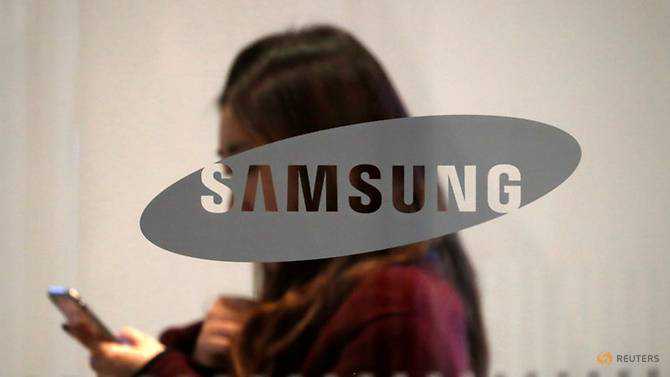Samsung Elec says weak chip demand pushed Q4 profit well below market estimates
08 January, 2019

Samsung Electronics surprised the market on Tuesday with an estimated 29 percent drop in quarterly profit, blaming weak chip demand in a rare commentary issued to "ease confusion" among investors already fretting about a global tech slowdown.
The South Korean firm also said profit would remain subdued in the first quarter due to difficult conditions in memory chips, but that the market is likely to improve in the second half of the year as customers release new smartphones.
Weaker earnings at the world's biggest maker of smartphones and semiconductors adds to worries for investors already on edge after Apple Inc last week took the rare move of cutting its quarterly sales forecast, citing poor iPhone sales in China.
China boasts the world's biggest smartphone market, but a slowing economy, exacerbated by a trade war with the United States, has seen demand for gadgets drop across the tech sector. Growing support for domestic champions has also impacted foreign brands, with Samsung's market share falling to 0.9 percent from a high of 18.2 percent in 2013.
Still, the South Korean firm's chips power the handsets of most major makers, including Apple and China's market leader Huawei Technologies Co Ltd . Its memory and processor chips account for over three-quarters of overall profit and about 38 percent of sales.
For October-December, Samsung estimated operating profit of 10.8 trillion won (US$9.67 billion), missing the 13.2 trillion won average of 26 analyst estimates in an I/B/E/S Refinitiv poll. It also estimated an 11 percent fall in revenue at 59 trillion won.
Samsung routinely releases estimated earnings figures before posting detailed results and elaboration toward the end of the month. For the just-ended quarter, however, it issued its first commentary since late 2014, when mobile phone profit dropped.
It said weaker-than-expected demand from data center customers adjusting inventories drove down chip prices and hurt earnings in the face of rising macro uncertainty. It did not disclose the customers or elaborate on the macro uncertainty.
Data center demand - mostly from the United States - currently accounts for as much as nearly 30 percent of demand for Samsung's DRAM chips compared with 5 percent five years ago, said analyst Kim Yang-jae at KTB Investment & Securities.
"Smaller investment from data centers, a really bad smartphone market in China, and impact from the U.S.-China trade war have all hit Samsung's chip business," Kim said.
On the whole, analysts expect Samsung's profit to decline through 2019, with a slowing Chinese economy eroding demand.
"Second- and third-tier Chinese smartphone makers saw drastic drops in their sales, which also took a toll on chip demand," said analyst Kim Young-woo analyst at SK Securities.
Prices for DRAM chips, which provide devices with temporary workspaces and allow them to multi-task, fell 10 percent in the fourth quarter, showed data from industry tracker DRAMeXchange. Prices of NAND flash memory chips, which hold data permanently, slipped 15 percent.
DRAMeXchange expects memory chip prices to fall 10 percent on an average in the first quarter of 2019.
Samsung also said a "stagnant and fiercely competitive smartphone market" pressured income and that the firm would continue to innovate its product line such as with foldable handsets and models capable of fifth-generation (5G) networking.
"If Apple's not selling, then is it Samsung that's selling well? It is not. The smartphone market is already saturated," said senior analyst Greg Roh at Hyundai Motor Securities.
"Apple's iPhones have not been selling well in China... That's even worse for Samsung because that would drag its chip prices down," Roh said, referring to Apple as a Samsung chip client.
Shares in Samsung opened 1.9 percent lower on Tuesday and were down 0.4 percent around midday versus a 0.2 percent fall in the benchmark Kospi index. The stock lost 24 percent last year amid a global tech selloff prompted by investor fears over the impact on supply chains of the Sino-U.S. trade war.
TAG(s):
